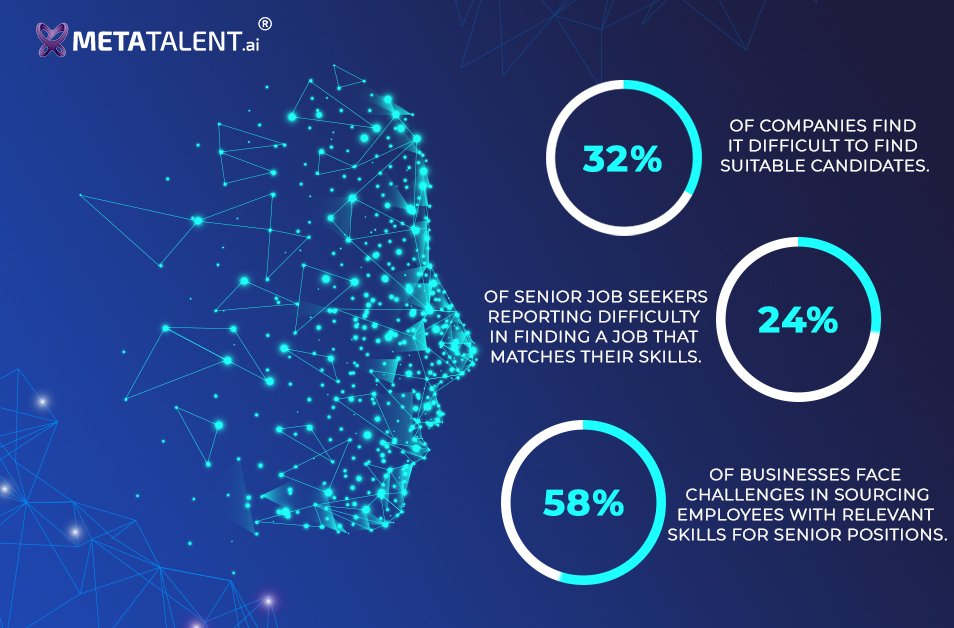Have you ever experienced a moment of speechlessness during a conversation with a colleague? The feeling of being completely bewildered, unsure of your career’s direction? How many times this year have you felt inadequate in your job knowledge?
These questions form the foundation of the ongoing job and skills crisis that our world is facing today. Humans have always distinguished themselves from animals through our ability to evolve and innovate. This inherent characteristic has given rise to a relentless rule in society—the survival of the fittest. Life has become a race, where those who adapt and anticipate thrive, while those who don’t are left behind in the face of technological advancement. This problem has resulted in substantial financial losses for numerous corporate giants globally, while those who have been proactive have seized the opportunity. In the Middle East, the skill gap has emerged as a significant obstacle to development. Research indicates that by 2030, the global talent shortage could surpass 85.2 million people, exacerbating the skills gap problem. At Metatalent, our mission is to bridge this gap and equip individuals with future-oriented skills, enabling them to transform for the workforce of tomorrow.
The skills gap in the Middle East is influenced by several factors. Technological progress plays a significant role, as studies have shown that it is the largest contributor to the skills gap across various industrial sectors. Additionally, outdated education systems that have failed to keep pace with the changing needs of the job market contribute to the mismatch between available expertise and in-demand jobs. Moreover, certain skills are particularly scarce in the Middle East, exacerbating the skills gap. While hard skills remain important, there is a growing demand for specific soft skills. Skills such as reasoning, problem-solving, creativity, adaptability, and emotional intelligence are highly sought after by employers. These skills enable employees to adjust to new forms of work and overcome challenges that may arise on the job. Moreover, technical skills in emerging fields such as data science, analytics, software development, and machine learning are in high demand across various industries.

Despite the alignment between employers and job seekers on the importance of certain skills, both parties encounter significant challenges in the job market. For junior or mid-career positions, around 32% of companies find it difficult to find suitable candidates. Similarly, a quarter of junior candidates struggle to find jobs that match their skill level. The gap widens for senior roles, with 24% of senior job seekers reporting difficulty in finding a job that matches their skills, while 58% of businesses face challenges in sourcing employees with relevant skills for senior positions. This suggests a mismatch in the assessment of skills between job seekers and hiring companies.
One possible explanation for the skills gap is a mismatch in the evaluation of skills between job seekers and employers. The Bayt.com study reveals discrepancies in the self-evaluations of candidates. While job seekers rate themselves highly on critical skills such as teamwork and time management, employers face difficulties in finding candidates with these skills. For example, 93% of candidates rate themselves as very good at teamwork, while 45% of recruiters struggle to find employees with this skill. This indicates that candidates may overrate themselves, highlighting the need for a more objective assessment of skills.
The skills gap is a significant challenge in the Middle East, and Saudi Arabia is taking strategic measures to address this issue through nationalization initiatives. By focusing on the development of soft skills, leveraging technology, and fostering collaboration between stakeholders, employers can play a vital role in bridging the skill gap. HR transformation is crucial in supporting Saudi nationalization efforts and ensuring the effective acquisition, development, and retention of Saudi talent. As the future of work unfolds, it is essential for employers to remain agile, adapt to emerging technologies, and invest in the continuous development of their workforce to thrive in the changing landscape.
